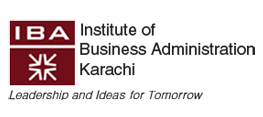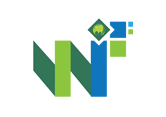Revisiting the conceptual and the operational frameworks for Sharīʿah governance of the Islamic banks
Submission Type
Paper Presentation
Abstract/Description
Islamic finance has been facing serious challenges both in terms of credibility as a divine and value-based system, and on the sustainability. Many authors and research institutions have been indicating the issues and suggesting reforms for some years, but one major area that could not get due attention regarding the reform agenda is the Sharīʿah governance system and integrating the sustainability framework to the governance related regulations. Another staggering point is that Islamic finance is moving on the path of convergence with conventional finance. It requires well thought-out conceptual and operational frameworks of governance for the Islamic Financial Institutions so that the requisite regulations could be introduced and effectively implemented to keep the Islamic financial services distinct from the conventional services. To suggest such frameworks, this qualitative study analyses the Shariah Governance Framework introduced by the State Bank of Pakistan in 2015, and the governance related published material. It is also based on structured interviews with 32 research participants including banks’ Sharīʿah board members, Sharīʿah reviewers/auditors, experienced Islamic banking practitioners, and the researchers/academics. As a case study, it is based on five research questions and many sub-questions relating to the SGF introduced by the State Bank of Pakistan in 2015. Based on the findings of the study, it suggests the bases, processes, and measures for the Islamic Financial Institutions moving to Islamic social finance and integrating it to the sustainability framework. It assigns roles to the regulators, the banks’ Sharīʿah boards, BODs and senior management, and the operations and audit staff. It could become a basis for reforms in the whole process of products development and implementation and conducting business by Islamic banking and finance institutions to realize the objectives of Islamic finance as a divine, just, and value-based system.
Keywords
Islamic banking and finance, Pakistan, Sharīʿah Governance, Conceptual Framework, Operational Framework
Session Chair
Dr. Aishath Muneeza, Associate Professor, INCEIF, Malaysia
Session Host
Mr. Muhammad Raza, Customer Support & General Services, Meezan Bank Limited
Start Date
30-5-2022 4:30 PM
End Date
30-5-2022 4:45 PM
Recommended Citation
Ayub, M., Saba, I., & Kamran, S. (2022). Revisiting the conceptual and the operational frameworks for Sharīʿah governance of the Islamic banks. IBA CEIF World Islamic Finance Forum (WIFF). Retrieved from https://ir.iba.edu.pk/wiff/2022/agenda/3
COinS
Revisiting the conceptual and the operational frameworks for Sharīʿah governance of the Islamic banks
Islamic finance has been facing serious challenges both in terms of credibility as a divine and value-based system, and on the sustainability. Many authors and research institutions have been indicating the issues and suggesting reforms for some years, but one major area that could not get due attention regarding the reform agenda is the Sharīʿah governance system and integrating the sustainability framework to the governance related regulations. Another staggering point is that Islamic finance is moving on the path of convergence with conventional finance. It requires well thought-out conceptual and operational frameworks of governance for the Islamic Financial Institutions so that the requisite regulations could be introduced and effectively implemented to keep the Islamic financial services distinct from the conventional services. To suggest such frameworks, this qualitative study analyses the Shariah Governance Framework introduced by the State Bank of Pakistan in 2015, and the governance related published material. It is also based on structured interviews with 32 research participants including banks’ Sharīʿah board members, Sharīʿah reviewers/auditors, experienced Islamic banking practitioners, and the researchers/academics. As a case study, it is based on five research questions and many sub-questions relating to the SGF introduced by the State Bank of Pakistan in 2015. Based on the findings of the study, it suggests the bases, processes, and measures for the Islamic Financial Institutions moving to Islamic social finance and integrating it to the sustainability framework. It assigns roles to the regulators, the banks’ Sharīʿah boards, BODs and senior management, and the operations and audit staff. It could become a basis for reforms in the whole process of products development and implementation and conducting business by Islamic banking and finance institutions to realize the objectives of Islamic finance as a divine, just, and value-based system.



